Arbi Chouikh is an activist, innovator, and entrepreneur who has dedicated his life to advocating for the rights of persons with disabilities in Tunisia. In 2016, Arbi participated in the HANDS-organized Professional Fellows Program, sponsored by the U.S. Department of State, and completed his fellowship with Disability Rights Washington (DRW) in Seattle. There he learned about disability protections included in the Americans with Disability Act (ADA) and how civil society advocates for disability rights. He was exposed to strategies on social media advocacy and learned about the various ways technology can improve accessibility and inclusion for people with disabilities.
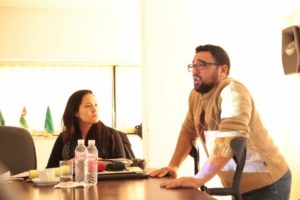 During his time in the U.S., Arbi found the inspiration to create HandYwiN, a website and mobile application that uses crowd-sourcing technology to determine the level of accessibility in public and private places in Tunisia for people with mobile disabilities. He consulted his mentors, colleagues, and HANDS staff to design the project and used his enhanced leadership skills to turn his ideas into action when he returned home.
During his time in the U.S., Arbi found the inspiration to create HandYwiN, a website and mobile application that uses crowd-sourcing technology to determine the level of accessibility in public and private places in Tunisia for people with mobile disabilities. He consulted his mentors, colleagues, and HANDS staff to design the project and used his enhanced leadership skills to turn his ideas into action when he returned home.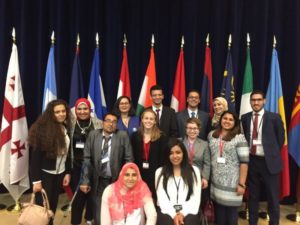
What did you hope to gain out of the Professional Fellows Program?
I heard from my friends who participated in the other sessions of PFP that the Professional Fellows Program is not only a cultural exchange program, but it’s also a program that enables you to learn about the initiatives, the programs, and the frameworks by American NGOs and policies [related to] disability and women’s rights. Therefore, the most important thing that encouraged me to apply was to discover the situation of people with disabilities in the US and how American policies and civil society organizations work on such rights of [this] population. I wanted to see the good practices of the US that aims to contribute to the social inclusion of people with disabilities, in addition to sharing the experience of the Tunisian civil society on disability rights especially after the Arab Spring and during the democratic process of Tunisia. I have been also thinking about some projects and ideas about the promotion of disability rights towards an inclusive society, and I was sure that I would find many people there who can help me to improve and [actualize] them.
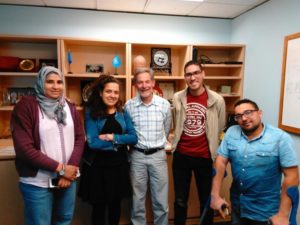
What are your future plans?
I will follow my work on disability rights, in particular in relation with the technology that harness the social inclusion of people with disabilities and grow my project that identifies the accessibility level of the places for people with wheelchairs. The project is targeted to two of Tunisian cities (Manouba and Menzel Bourguiba), but I want to enlarge it to be an international resource for accessibility and related laws, to be used by every person with wheelchair who wants to go anywhere.
HANDS is proud of Arbi and the rest of our Professional Fellows Program alumni for all of their accomplishments. We are grateful for the support of U.S. Department of State’s Bureau of Educational and Cultural Affairs, The World Affairs Council of Seattle, local American host organizations, and our donors for making the program possible.
Want to learn more about accessibility and disability rights in Tunisia? Check out this video produced by Arbi Chouikh and his host organization, Disability Rights Washington.
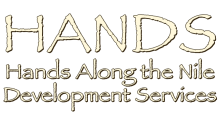
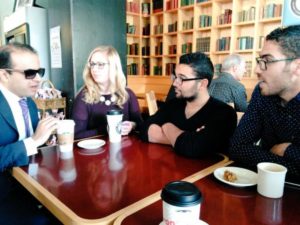
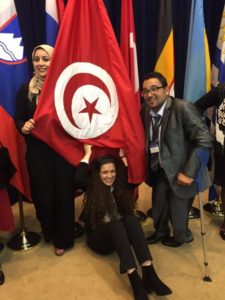
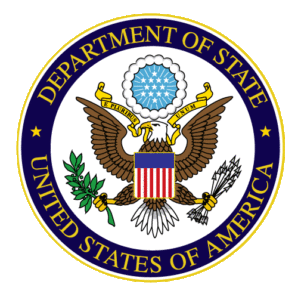
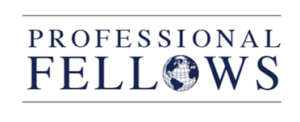
No Comments to "The Power of Technology: Promoting Accessibility and Inclusion in Tunisia"